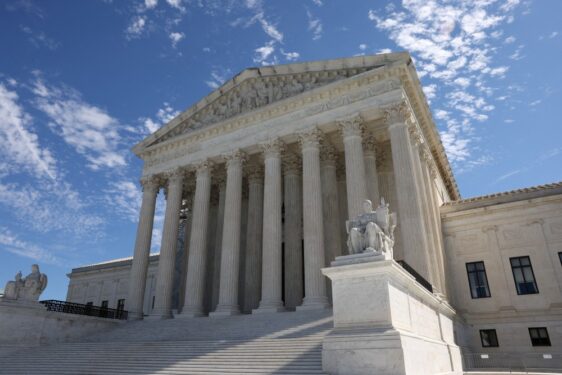
WASHINGTON — The United States Supreme Court is beginning deliberations March 26 concerning the Biden administration’s handling of safeguards related to the use of the chemical abortion drug mifepristone and its potential risks to women.
At the heart of the case, FDA v. Alliance for Hippocratic Medicine, lies a debate over reinstating initial safety measures for the prescription of mifepristone, including mandatory in-person doctor visits and adherence to a seven-week limit for its usage.
The FDA initiated this legal battle following a federal court ruling in August 2023, which criticized the agency for neglecting proper testing and safety protocols during the drug’s approval process in 2000.
In response to evolving health care practices, the FDA removed the requirement for in-person doctor visits in 2021, allowing telemedicine for prescription and mail distribution of the abortion pill. Recently, major pharmacies like Walgreens have begun selling the pill over the counter.
Elizabeth Gillette, who endured severe complications from a chemical abortion, is slated to testify about the insufficiency of safeguards surrounding the drug. In an interview, Gillette recounted her traumatic experience, emphasizing the severe side effects and emotional toll of the procedure.
Chemical abortions, comprising a two-pill regimen, terminate pregnancies by blocking essential nutrients for fetal development and expelling the unborn child from the womb. Gillette said her experience highlights the inadequacy of preparation and care for patients undergoing such procedures.
With chemical abortions accounting for a significant portion of all abortions in the United States, concerns over safety and health care protocols are paramount. Organizations like Alliance Defending Freedom (ADF) have challenged the FDA’s decision to remove critical safeguards, advocating for the reinstatement of in-person care.
Despite the FDA’s initial approval of mifepristone with restrictions in 2000, subsequent changes have eased regulations, including gestational limits and authorization for non-physicians to prescribe the drug. However, legal challenges seek to revert to stricter guidelines to mitigate potential risks associated with its usage.
As the debate unfolds, the Catholic bishops in America have voiced apprehension regarding the accessibility of chemical abortions without adequate medical oversight. They warn of potential harm to women and emphasize the necessity of upholding stringent safeguards.
Ultimately, the Supreme Court’s decision will shape the future landscape of abortion regulations, balancing medical access with safety concerns.
This story was adapted from the Catholic News Agency.
